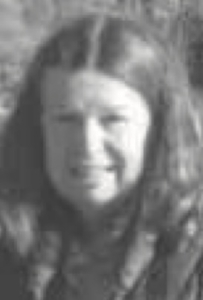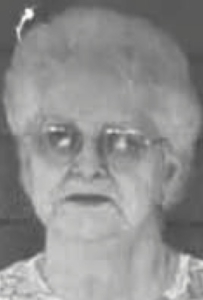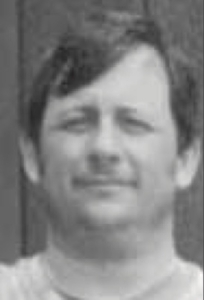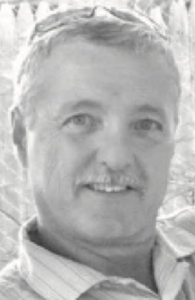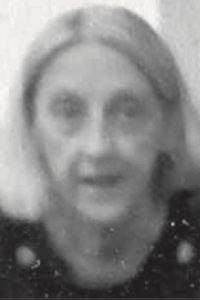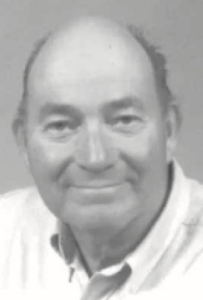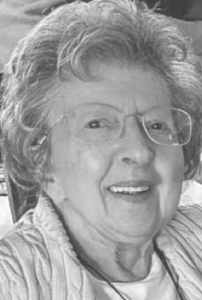Up and down the Kennebec Valley: Clinton and Benton School
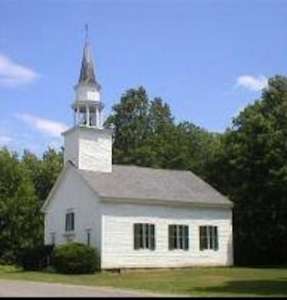
Clinton Academy, in 1942, was one of four elementary schools in town; they consolidated in 1957, and the next year the town sold the District #5 building to the Benton Falls Congregational Church, pictured here, for one dollar.
by Mary Grow
This subseries on education is organized by the dates the central Kennebec Valley towns were incorporated, and Clinton, in 1795, was next after Fairfield, in 1788. Therefore the history of education in Clinton, on the east side of the Kennebec River, opposite the northern part of Fairfield, follows the December 2024 articles on Fairfield.
However, until 1842, the southern part of Clinton – approximately half the town, and the first-settled part – was what became by a March 16, 1842, legislative act the separate town of Sebasticook, renamed Benton as of June 19, 1850. The early history of Clinton schools is therefore the early history of Benton schools as well.
* * * * * *
Clinton’s European settlement was shaped by the Kennebec River on its western boundary, and by the Sebasticook River, which maps show making a wiggly W shape in southeastern Clinton before flowing southish through present Benton into the east side of the Kennebec at Winslow.
Europeans made their way up both rivers. In his 1970 Clinton history, Major General Carleton Edward Fisher wrote that waterfalls and rapids made navigation challenging on parts of both. One of the easier stretches on the Sebasticook was between Winslow and the southern part of Clinton, up to the village now named Benton Falls.
Additionally, because the Sebasticook was the smaller river, it was easier to dam to provide water power, Fisher said. Consequently, the majority of early Clinton settlers stopped in the area that became Benton.
Fisher found it impossible to date the first settlement precisely, but he believed several families had arrived by the early 1770s. In Clinton, as in other central Kennebec valley towns, providing schools was not settlers’ top priority; Fisher mentioned 1790 and 1794 town meeting appropriations, with no record that any money was for schools.
Only after Clinton was incorporated in 1795, Fisher said, did voters specifically fund education. At a town meeting that year, they raised 20 pounds, then added 30 pounds more.
In March 1797, he wrote, town meeting voters provided $300 for teaching and $350 to build schoolhouses – and in April reconsidered and defeated the building money. In 1798, they allowed $150 for education, in 1799 and 1800, $200 each year. In 1800, they approved a separate $500 for school buildings.
Meanwhile, another 1797 vote empowered the selectmen to create school districts. In each district, voters elected a man to be “head of class.” Fisher’s description of the 1800 districts shows three on the Kennebec, numbered First, Second and Third, with three men in charge of six classes (one had one, one two and one three); and four more districts on the Sebasticook, two on the east side and two on the west, with more than nine classes (incomplete records left the total undetermined).
Students, defined as children aged four to 21, numbered 102 in the three Kennebec districts in 1800. Fisher found figures for only two of the four Sebasticook districts; they totaled 65. By 1803, he wrote, Clinton had more than 260 students.
As in other towns, district boundaries changed frequently, and so did methods of running the districts. Sometimes district residents chose their leaders, sometimes town meeting voters made the choices.
The first school committee was elected in 1821, Fisher wrote; this method continued until 1854, when voters instead elected a single school supervisor. They went back and forth between the two types of leadership until 1895.
Clinton had 13 school districts in 1820, Fisher said, increased to 15 in 1821 when the town school committee was created. That year, records showed 633 students; four districts had 60 or more, and the smallest had 13. By 1841, there were 21 districts.
At no point did Fisher identify the southern districts that were to become Sebasticook’s in 1842. His descriptions of historic boundaries, though meaningful to residents at the time, provide few clues in the 21st century.
After the 1842 division, 12 of the 21 districts remained Clinton’s and nine went to the new town. Clinton still had 12 in 1856, Fisher wrote. Number 12 was in Clinton Village; because of population growth there, it was divided and District 13 created in 1860, but in 1867 the two were reunited.
Fisher wrote that the buildings funded in 1800 didn’t get built, so in 1803 voters instructed each district to build its own. Because district records were not necessarily included in the town records, he found it hard to figure out what buildings were built when, though he cited examples from 1821 to 1839.
Schoolhouses were built near populous areas, obviously – Clinton Village on the Sebasticook, Pishon’s Ferry and Noble’s Ferry on the Kennebec, Morrison Corner and Town House Hill in mid-town.
The Morrison Corner schoolhouse was the earliest Fisher listed; voters in 1821 raised $166.51 for it. It appears on the 1856 and 1879 maps of Clinton as the second building north on the east side of the four-way intersection.
In 1895, Fisher said, voters approved a replacement building, apparently on a nearby lot, that was completed in August 1896. It served until 1963; in 1970, the building was a house.
A photo Fisher took in 1975 and included in his history shows a main building on a (not necessarily original) windowed basement, with a small single-story addition on one end. There are two second-floor windows above the addition, under the roof-peak, and no windows on the side of the main building.
Fisher dated the nearby Town House Hill school to 1826. He said it operated until 1932, and the 1826 building was a residence in 1970. His 1975 photo of this former schoolhouse shows a rectangular, single-story peaked-roofed building.
Like other historians, Fisher noted that from the 1700s into the early 1900s, most teachers doubled as janitors, responsible for cleaning, simple maintenance and building the fires in fireplaces or stoves all winter. They were not highly paid – he mentioned one woman earning $7 a week in the early 20th century.
Fisher identified discipline as a problem, giving several examples of teen-aged students, mostly but not all boys, testing teachers by giving them a hard time. He cited a teacher’s diary from 1861 describing misbehavior that ended with a hole in the floor. After some of the students responsible were made to pay to fix the floor, they apparently settled down.
* * * * * *
Fisher wrote that in the fall of 1831, a group of residents planned to open a high school for girls, to be named Clinton Female Academy – an unusual proposition for the time. Resident Asher Hinds deeded an eight-by-nine rod (132-by-148.5 foot) lot in what is now Benton Falls. (Fisher did not say whether it was a gift, or the school trustees paid for it.)
Hinds was a major landowner whose 300 acres included almost 100 acres in Benton Falls. He and his wife, Rebecca (Crosby) Hinds, had nine children, born between 1789 and 1809, of whom three daughters (and four sons) lived to maturity.
The girls’ school trustees ran out of money, Fisher said, and Clinton Academy became a coed school run by the Methodist Society. An on-line Benton history says the Academy building was put up in 1831, beside the Benton Falls meeting house.
The earliest school catalogue Fisher found was for 1845: of 83 students, six were from Clinton, as were two members of the board of trustees. (The rest were presumably residents of Sebasticook, soon to become Benton.)
In 1845, he wrote, the school met for two 11-week terms, the fall one starting in September and the spring one in March. Tuition for a term depended on what the student studied: $4 for languages, $3.50 for natural sciences, $3 for the basic course (defined in a 1918 textbook, found on line, as including reading, writing, history, geography, civics, arithmetic, physiology and hygiene).
The on-line history says the town library, organized in 1849, was headquartered in the Academy building.
The Academy closed in 1858, and the on-line history says the building later became the District 5 schoolhouse. It burned in 1870, and “the library was lost.”
In 1871, the history continues, the schoolhouse was rebuilt, though its “upstairs hall” wasn’t finished until 1883. In 1942, it was one of four elementary schools in town; they were consolidated in 1957, and the next year the town sold the District 5 building to the Benton Falls Congregational Church, for a dollar.
(Meanwhile, the library had reopened in 1900, in a storehouse that had been Asher Hinds’ when he ran a store at Benton Falls. That building burned in 1914. An on-line search for Benton library yields a reference to the Brown Memorial Library, in Clinton [see Clinton’s website and the Dec. 2, 2021, issue of The Town Line for more information on this library].)
Clinton officials obeyed state law and opened a free high school in 1873, with voters appropriating $300 for it, Fisher wrote. Henry Kingsbury, in his 1892 Kennebec County history, said it started in 1874 with a $500 appropriation.
As in other towns, high school classes initially met in district schools for a single term (seven to 10 weeks in Clinton). Fisher, like the Fairfield Register writer cited on Fairfield high school two weeks ago, commented that courses offered were at first barely above eighth-grade level.
By 1892, Kingsbury said, there were spring and fall terms each year, taught in district schools and well attended.
In 1898, according to Fisher, high school classes moved to the village school. The first graduating class, of five students, was in 1902. The first high school building in Clinton opened in 1903 (all 12 grades held classes there until about 1940).
A 1969 photo credited to Paul W. Bailey shows a three-story wooden building with basement windows, by then Clinton’s Baker Street School for elementary students. Historical information on the town website says the building was 68-by-40 feet and had three classrooms on each of the first two floors and one on the top floor. The privy was in a separate building behind the school.
After creation of Maine School Administrative District (MSAD) #49 in 1966, high school students went to Fairfield. The Clinton building burned – probably by arson — on July 25, 1975.
* * * * * *
Kingsbury wrote that when Benton became a separate town in March 1842, it included nine of Clinton’s school districts, and by 1892 a tenth had been added. As of 1892, he wrote, each district had “a comfortable and well-appointed school house, uniform text books are used, and the entire school property is valued at about $3,500.”
Up to 1892, Benton had a high school in the Benton Falls schoolhouse, in District 5, Kingsbury said. He did not say when it opened; presumably in 1873. In 1892 voters appropriated no money to continue it, “the proximity of Waterville offering advantages in higher education with which it was useless for Benton to compete.”
Main sources
Fisher, Major General Carleton Edward, History of Clinton, Maine (1970)
Kingsbury, Henry D., ed., Illustrated History of Kennebec County Maine 1625-1892 (1892)
Websites, miscellaneous.


 If you have diabetes, it’s wise to have your eyes checked by an ophthalmologist to make sure they’re not affected by the disease.
If you have diabetes, it’s wise to have your eyes checked by an ophthalmologist to make sure they’re not affected by the disease. To the editor:
To the editor: To the editor:
To the editor: The Waterville Area Soup Kitchen will be holding its first fundraiser on Thursday, March 20, at the Elks Club, on Industrial Street, in Waterville. The event is a tropical themed winter getaway. The doors will open at 5 p.m.
The Waterville Area Soup Kitchen will be holding its first fundraiser on Thursday, March 20, at the Elks Club, on Industrial Street, in Waterville. The event is a tropical themed winter getaway. The doors will open at 5 p.m.


